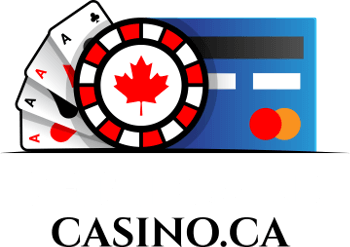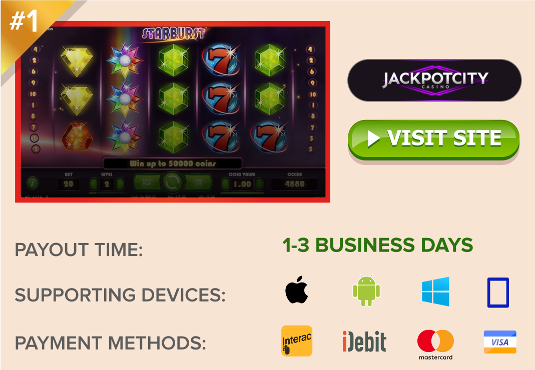How to Play 7 Card Stud Hi/Lo (8 or Better)

Seven Card Stud is one of the oldest poker games to use a full 52-card deck. It is the basis of modern Hold’em poker games, which exchange traditional “streets” for the communal “flop, turn, and river”. It also represents half of today’s topic, 7 Card Stud High/Low, or as it’s known by mixed-game gurus, “Eight or Better”.
How to Play Eight or Better (7 Card Stud H/L)
- 7 Card Stud High Rules: The original, high-hand version of 7 Card Stud is a simple one to learn. Throughout the hands five betting rounds, players receive 7 cards each…
- 7 Card Stud Low (Razz) Rules: This lowball poker variant is played much like the original, except that the lowest ranking hand wins. Aces are low, straights and flushes don’t count…
- Merging the Two Poker Games: 7CS-8B merges these into a High/Low game in which each player completes two hands from the same 7 cards, competing for two halves of the same pot…
- Low Hand Qualification: The sole deviation from Razz is that, in order to compete for the low hand, you have to qualify with a hand of “8-High” or lower, hence the term “Eight or Better”…
- Effective Strategies: Being such a highly involved game, it takes an adept poker player to strategize 7CS-8B from all angles – the high hand, the low hand, table evidence…
|
Disclaimer – Not all forms of gambling are legal in all provinces of Canada. The legal age to gamble also varies by province. Breaking the law is a serious matter. The information provided on this website is meant for educational purposes only, and we will not be held liable for any irresponsible / illegal activity on your part. Know the gambling laws in your province and follow them. The following pages provide more information on Canadian gambling laws:
|
1. Playing 7 Cards Stud High – Rules and Basic Strategy |
|
As much as I would love to explain this game to you in elaborate detail, I’m happy to report that I don’t have to. Why? Because I’ve already done just that. Please refer to this link (opens in a new browser), then return here for the next step. If you’re already familiar with the rules, scroll down to step 2. Please note that, while the strategies on that page are helpful, and should be taken into consideration, they are not precisely correct for 7 Card Stud Hi/Lo. Continue reading below for more accurate advice. |
2. Rules of 7 Card Stud Low – Razz w/ Basic Strategy |
|
Once again, I won’t be typing out a complete guide to this game’s rules, because such a page already exists. You can learn the complete rules of the “low” variant, known as Razz, in the following link (opens in a new browser). However, where Razz has no “qualifying” hand requirements, this game’s low hand does (i.e. 8 High or Better). You’ll learn more about that in the following section, after you’ve completed the rules tutorial. Or, if you’re already familiar with Razz, skip on down to step 3. Please note that the above link only provides rules to the game, not strategies. You will find a link on that page for strategic advice (or click here). While those strategies are noteworthy, they are not specific to the Hi/Lo version. |
3. The Merging of 7 Card Stud High and Low |
|
Merging these two games into one has a lot of connotations. You’re not just competing for one hand, but two. Each hand is competing for half of the same pot. If you have a great high hand, but don’t qualify for a low hand, the best you can earn is half the pot. You should know by now how to play both of these games, so let’s take a look at how the double-handed rules impact the showdown. When a showdown is reached – something that happens notably more often in 8/B than 7CS or Razz – the high hand will be dealt with first (mostly because someone is guaranteed to win it). All active hands (that didn’t fold prior) are compared. The player capable of piecing together the best, highest ranking 5-card poker hand from their 7 cards will win half of the pot. Once this is settled, the low hands are up next. Each active player will again arrange their 7 cards to form the best, lowest-ranking poker hand. The lowest qualifying hand will win the other half of the pot. If two players tie for the low hand, they will split this half of the pot. Or, if no player qualifies for the low hand, the winner of the high hand instantly wins the whole pot. Scooping: A player who is able to win the high and low hand is said to have “scooped” the pot. |
4. Rules of Low Hand Qualification |
|
Unlike Razz, where any hand can win by lowest rank, by Seven Card Stud H/L rules, the low hand can only be won by a qualifying hand. In order to qualify for the low hand, it must contain no pairs, and no cards higher than an 8. The best and worst qualifying hands are: • Best = A-2-3-4-5 (a.k.a. The Wheel) Any 5-card hand with a 9 or higher, pairs, trips, etc., will not qualify. A hand of 8-6-5-4-3 will beat a hand of 8-7-3-2-A. The 8s are equal, but the next highest cards – 6 and 7 – are not. The 6 beats the 7, so the first hand wins. We would call this winning hand 8-6 High. The Wheel, A-2-3-4-5, is considered the most valuable hand in eight or Better because it has great potential to win high and low, scooping the pot. |
5. 7CS Eight or Better Strategy |
|
Due to its double-handed nature, this game requires a lot more concentration and cursory examination than most. I do not recommend jumping into 7CS-8B without a substantial background in poker. You should be highly familiar with both of its high and low variants before you begin. Of course, the merged version requires some adaptation to strategy. Here are some important tips to help you along. All or NothingI’ve read so many strategy books and online guides that say, because this is two games in one, you should play any starting hand that has good potential to win the high or low hand. I (and a few dozen pros who know better) say it’s “all or nothing”. If you don’t have the potential to win both hands, you probably shouldn’t play it at all. The problem with playing for one hand is that you’re betting into a full pot, with the hopes of winning just half. So, if you can’t win it all, invest nothing. The best starting hands that you should always play are: • Three low cards including an Ace These hands have the potential to make a straight, flush, or at least an Ace-high, plus a qualifying low hand. Remember, scooping is the ultimate goal! When to Go High OnlyThere are only two scenarios when you should invest in a hand that only qualifies to win the high pot. The first is when you honestly believe you have the best high hand, based on all the evidence on the board. The second is when you have a good high hand – one you’d consider worthy of chasing with in a 7CS High – and the door cards indicate no one is qualifying low. When to Go Low OnlyIf you had a good starting hand (see All or Nothing above), but the connectors stopped connecting, or the suits dried up, but the low hand is still there. You may have good reason to continue. Look around at the board. If no one else appears to be qualifying for a low hand, or if it’s obvious no one can beat yours, you might as well bank half the pot on it. Raising with Ace UpIf someone has an Ace showing and posts a raise, you better be able to beat a pair of Aces on the high end. As for the low, see what else he’s showing. Unless you know you have his low hand beat, you’re better off folding. The only time to disregard such a show of strength is if you know this player to misrepresent. In the same token, you can use an Ace up as a good scare card to raise, so long as you haven’t been labeled a bluffer yourself. |
 Jackpotcity.com is our editorial pick for your gaming needs. Currently offering an entire suite of casino games, as well as a wide range of Canadian deposit options, JackPotCity truly offers world-class gaming.
Jackpotcity.com is our editorial pick for your gaming needs. Currently offering an entire suite of casino games, as well as a wide range of Canadian deposit options, JackPotCity truly offers world-class gaming.





